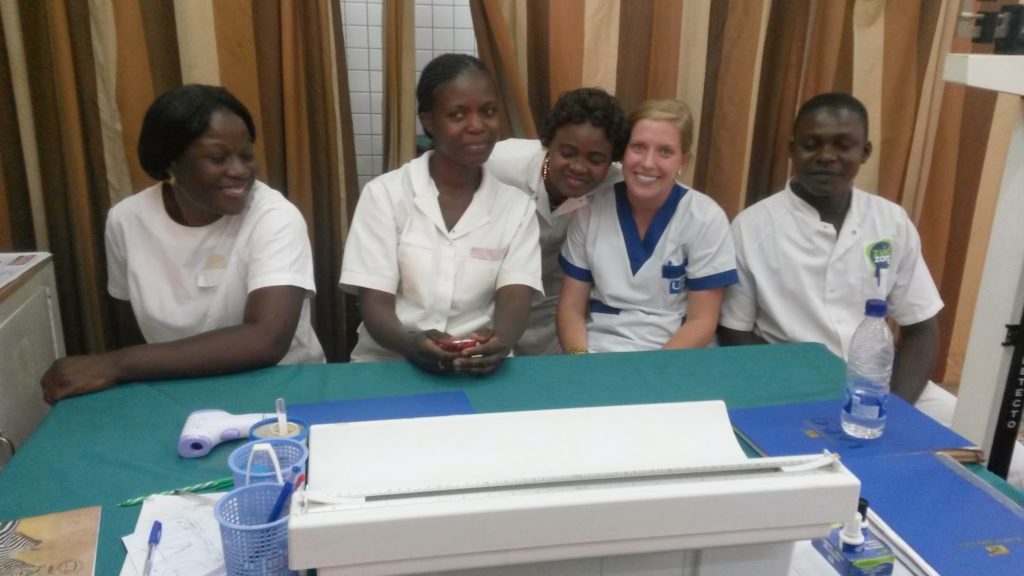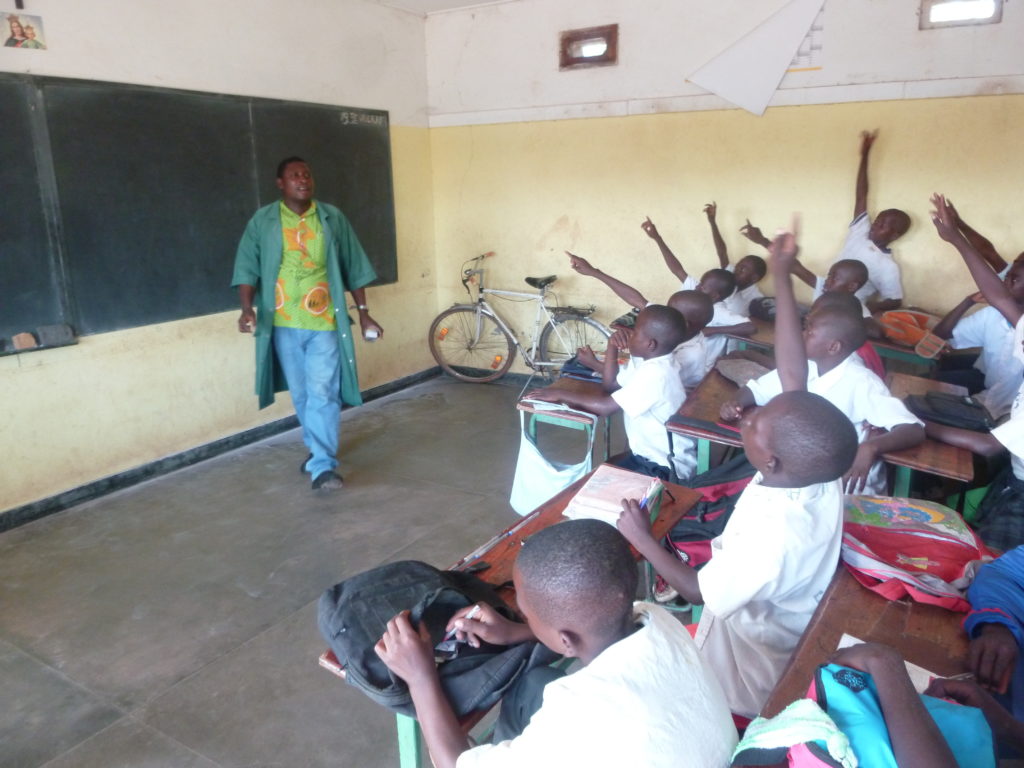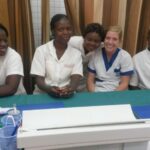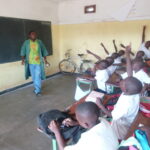Bakanja Centre
Site Overview
Nestled just outside Lubumbashi in the Democratic Republic of Congo, the Bakanja Centre serves as a welcoming haven for homeless and vulnerable youth arriving from the streets. As the first stop in the Salesians’ reintegration process, it provides essential services such as meals, hygiene, shelter, and companionship. Once stabilized, young people are supported through education, counseling, and skill-building—often paving the way for eventual family reunification. This holistic approach combines pastoral care, practical assistance, and educational empowerment with a strong emphasis on dignity and community.
Volunteers at Bakanja Centre play a pivotal role in this lifecycle of hope. They interact closely with youth—helping in daily routines, tutoring, organizing group activities, and joining outreach efforts to connect with street youth in their own environment. Through shared meals, conversations, and creative programming like mask-making during COVID-19, volunteers become trusted mentors and vital members of the Salesian family. Ideal for those passionate about social justice, youth care, and transformative aid, this placement offers an immersive, emotionally rewarding experience where every day brings the chance to restore confidence, build relationships, and witness young lives take a hopeful turn.
Available Ministries
- Education
- Teacher (Primary)
- Teacher (Secondary)
- Agricultural
- Healthcare
- Dentist
- Nurse & Nurses Aide
- Physician
- Social Work
- Youth Centre
Location
Time Commitment
Opportunities
Current Volunteers
Ministry Background
See documents – Educational Project works Mamma Margaret diagram works Mamma Margaret.
Purpose & Objectives
The education of youth has always engaged the family and civil society, because education is guiding and preparing young people to make it able to fill afterwards a place worthy of man in society. It is in this context that were born in 1994 the Mamma Margaret Project, the name of the Mother of St. John Bosco (1815-1888). This organization collects ideas, experiences, and suggestions of different centers (“”houses””) to stimulate the creation of a common project for youth at risk. The works Mamma Margaret (WMO) welcome boys and girls: 1. The first reception centers for street children (family breakdown) to protect and initiate a social survey (search for the family). An awareness of children is implemented to leave the streets and return to the family. 2. Bakanja Centre, the “”parent”” of WMO: literacy, schooling and family reintegration. 3. Family-houses where boys and girls live together under the protection of a “”mom”” or a couple and study in neighborhood schools. 4. Four vocational centers where young people can learn a trade. Bakanja Centre hosts about 85 internal and 280 external children, from 6 to 18 years. The Centre focuses on the willingness of the child to leave the street, which will lead to an ultimate goal of reintegration, by following a few steps: identification, social surveys, family orientation or reintegration into another home rehabilitation, schooling or literacy, along with extracurricular activities. It also serves as a transit center for interns who will be sent to vocational centers where they can learn a trade. Moreover, Bakanja Centre features a clinic to treat all children WMO staff, but also the poor surrounding communities.
Programs, Activities, & Other Projects
The Mamma Margaret Works (WMO) are supervised by a coordinator, who is also part of the team Bakanja Centre. He is assisted by a Secretary, working in the Office of the Salesian projects. Bakanja Centre is the central node of childcare and youth network. Close links should be maintained with other homes and initiatives, and therefore with the staff coordinator of the WMO. Similarly, close cooperation is maintained with the Office of the Salesian projects, which initiates or facilitates fundraising for WMO and development projects.
Duties & Responsibilities
At Bakanja Centre, the following tasks are required: *Social and psychological work in Bakanja Centre, in support of Social Workers. *Conducting recreational activities: conducting recreational groups, preparation of games, activities and weekend camps for children and youth; organization of excursions and camps consistent with the Centre’s children. *In cooperation with the Office of the Salesian projects and Coordinator WMO support to improve the educational system monitoring (centralized, standardized worksheets and coordination with other non-Salesian centers; support a field survey on sociological background of students in vocational centers, support for the organization of training and coordinating the network of social workers). *Social support, psychological or recreational in other houses, in a timely manner upon request. In addition, part-time is provided to the Office of Salesian projects, depending on the needs and support the Central Information created in 2013. This center aims to: Improve the management, planning, agricultural and industrial production Salesian centers, generate income and thus strengthen the capacity of self-financing centers, contribute to a positive and dynamic image of Salesian. Under the Central sales, income generation projects are implemented, particularly regarding agricultural production and food processing. In the same context and under the responsibility of the Project Office and the Provincial Bursar, the volunteer may be required to provide support to the management systems, sales, and stocks. Working hours: from 7:30 to 16:30. Extracurricular activities may require time during the weekends. Vacation time is to be determined by the host house, according to the school calendar and / or recreation.
Useful Academic Preparation
Experience working with children and in social structures.
Special Challenges/Conditions
Bakanja Centre is located in Lubumbashi, capital of Katanga province and the second largest city in Congo. The Centre is located in a populous suburb of the city, Kenya. The area is mainly mining. Since colonial times, the extraction of minerals required a large labor force. This led to the exodus to urban centers at the expense of the countryside. Over time, this population, ethnically diverse, as from several provinces, has increased significantly. Crafts, small businesses and services have also developed in the informal sector. Overcrowding makes precarious living conditions, access to school, housing and health care. Lines of communication with the interior of the country are also lacking. In recent years and especially since 1990, the African family, Congolese in particular, has been shaken by a socio-political and widespread economic crisis. Unemployment, divorce, witchcraft, war, looting, and displacement has led to severe problems with disastrous consequences heavily weighing on children and youth, yet unable to defend for themselves against these evils, and often eventually go astray because of missed education.
Area Information
Bakanja Centre is located in Lubumbashi, capital of Katanga province and the second largest city in Congo. The Centre is located in a populous suburb of the city, Kenya. The area is mainly mining. Since colonial times, the extraction of minerals required a large labor force. This led to the exodus to urban centers at the expense of the countryside. Over time, this population, ethnically diverse, as from several provinces, has increased significantly. Crafts, small businesses and services have also developed in the informal sector. Overcrowding makes precarious living conditions, access to school, housing and health care. Lines of communication with the interior of the country are also lacking. In recent years and especially since 1990, the African family, Congolese in particular, has been shaken by a socio-political and widespread economic crisis. Unemployment, divorce, witchcraft, war, looting, and displacement has led to severe problems with disastrous consequences heavily weighing on children and youth, yet unable to defend for themselves against these evils, and often eventually go astray because of missed education.
Special Challenges & Conditions
The political and security situation has improved in recent years, although it remains volatile, particularly in pre-election period and in some parts of Katanga. It is recommended that volunteers are well informed of personal safety before their departure. On site, all volunteers are closely supervised in Salesian structures, thus enjoying a safe environment. Salesian network includes dispensaries and clinics known.




